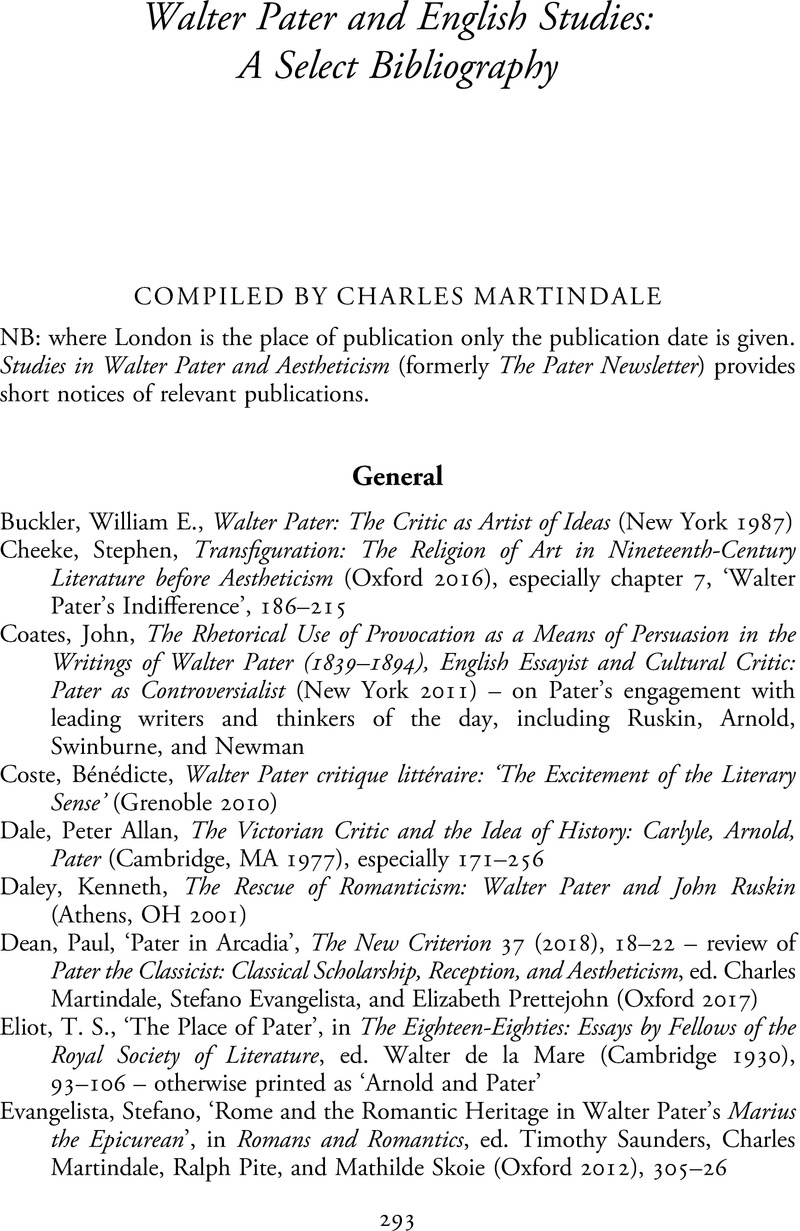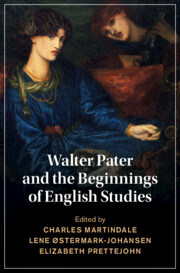Book contents
- Walter Pater and the Beginnings of English Studies
- Cambridge Studies in Nineteenth-Century Literature and Culture
- Walter Pater and the Beginnings of English Studies
- Copyright page
- Contents
- Figures
- Contributors
- Preface
- Abbreviations
- Introduction: Pater and English Literature
- Part I General
- Part II Individual Authors: Early Moderns, Romantics, Contemporaries
- Postscript
- Walter Pater and English Studies: A Select Bibliography
- Index
- Cambridge Studies in Nineteenth-Century Literature and Culture
- References
Walter Pater and English Studies: A Select Bibliography
Published online by Cambridge University Press: 14 November 2023
- Walter Pater and the Beginnings of English Studies
- Cambridge Studies in Nineteenth-Century Literature and Culture
- Walter Pater and the Beginnings of English Studies
- Copyright page
- Contents
- Figures
- Contributors
- Preface
- Abbreviations
- Introduction: Pater and English Literature
- Part I General
- Part II Individual Authors: Early Moderns, Romantics, Contemporaries
- Postscript
- Walter Pater and English Studies: A Select Bibliography
- Index
- Cambridge Studies in Nineteenth-Century Literature and Culture
- References
Summary

- Type
- Chapter
- Information
- Walter Pater and the Beginnings of English Studies , pp. 293 - 298Publisher: Cambridge University PressPrint publication year: 2023



